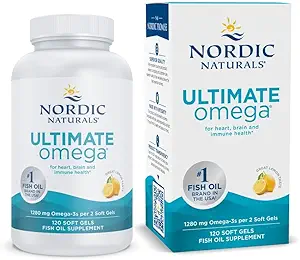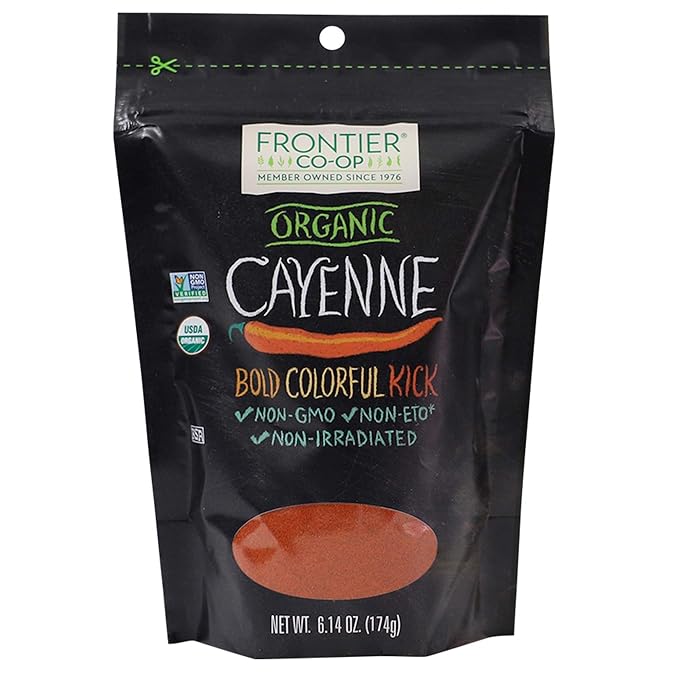How Cayenne Pepper Fights Inflammation: 7 Proven Benefits + Daily Usage Guide
The Science Behind Cayenne’s Anti-Inflammatory Power
Cayenne pepper contains capsaicin, the compound responsible for its heat and its anti-inflammatory properties. I include it every meal even it is a little sprinkle, if I can but it is very spicy and not for everyone. Research shows that capsaicin can help reduce certain inflammatory markers in the body, though results vary between individuals and should be considered as part of a comprehensive approach to managing inflammation.
The spicy compound in cayenne pepper may help reduce some types of inflammation, but it works differently for everyone. Make sure to read below who should avoid cayenne pepper.
7 Evidence-Based Anti-Inflammatory Benefits
1. Arthritis and Joint Pain Relief
Some studies suggest that cayenne cream may reduce osteoarthritis pain by up to 33% in certain individuals. Results for rheumatoid arthritis vary widely, with some people experiencing significant relief while others see minimal improvement.
2. Digestive Inflammation Support
Contrary to popular belief, cayenne pepper may help protect the stomach lining in some people by promoting protective enzyme production. However, those with existing digestive issues should proceed with caution and consult their healthcare provider.
3. Cardiovascular Inflammation Management
Regular cayenne consumption has been associated with modest reductions in certain heart disease inflammation markers. These benefits appear most pronounced when combined with other heart-healthy lifestyle choices.
4. Metabolic Support
Some research indicates capsaicin may help improve insulin sensitivity in certain pre-diabetic individuals. However, cayenne pepper alone is not a treatment for diabetes and should only complement medical care.
5. Respiratory Inflammation Relief
Cayenne can act as a mild decongestant and may help some people with sinus congestion. Individual responses vary, and those with respiratory conditions should consult their doctor before using cayenne therapeutically.
6. Skin Inflammation Applications
Topical capsaicin has shown promise for certain inflammatory skin conditions in clinical settings. Professional guidance is recommended, as some people may experience skin irritation.
7. General Inflammation Support
Regular cayenne intake may contribute to reduced overall inflammation markers when part of an anti-inflammatory diet and lifestyle. Effects are typically modest and work best alongside other healthy habits.
Important Considerations*
Cayenne pepper is not suitable for everyone. Those with gastric ulcers, acid reflux, or irritable bowel syndrome should avoid it or consult their healthcare provider. It may interact with certain medications, including blood thinners and ACE inhibitors. Pregnant and nursing women should seek medical advice before using cayenne therapeutically.
Maximum Absorption Combinations
The Power Trio
Combining cayenne with black pepper and healthy fats can significantly improve absorption. Add a pinch of each to meals when possible.
Best Combinations for Daily Use
- Cayenne + Olive Oil: Enhances fat-soluble compound absorption
- Cayenne + Avocado: Natural fats boost bioavailability
- Cayenne + Turmeric + Black Pepper: Complementary anti-inflammatory effects
- Cayenne + Ginger: May enhance overall benefits
- Cayenne + Coconut Oil: Good for cooking or adding to warm drinks
Timing for Best Results
- Take with meals for better absorption
- Morning consumption may be optimal for some people
- Spread intake throughout the day rather than large single doses
Quick & Easy Ways to Add Cayenne Daily
Morning Drinks (5-Second Additions)
- Lemon Cayenne Water: Add a pinch to warm water with lemon juice, I do this the most often
- Coffee Kick: Dash of cayenne in your coffee for added warmth
- Tea Upgrade: Small pinch in green or black tea
- Golden Milk: Mix with warm almond milk and honey
Instant Meal Upgrades (No Cooking Required)
- Avocado Toast: Light sprinkle on top
- Yogurt Bowl: Mix into Greek yogurt with honey
- Salad Shaker: Add to your salad dressing bottle
- Soup Topper: Dash on any soup before eating
- Hummus Mix: Stir into store-bought hummus
30-Second Recipes
- Spicy Mayo: Mix cayenne into mayo for sandwiches
- Power Butter: Blend into almond or peanut butter
- Instant Marinade: Olive oil + lemon + cayenne
- Egg Scramble: Add while scrambling eggs
Grab-and-Go Options
- Pre-mix cayenne with salt in a small shaker
- Make cayenne honey (mix and store)
- Prepare weekly cayenne oil for drizzling
Final Thoughts
Cayenne pepper is a flavorful spice with some genuine anti-inflammatory potential, but keep it real—it’s not a miracle cure for everything. Think of it as one tool in your inflammation-fighting toolkit, alongside good nutrition, regular exercise, quality sleep, and stress management. Start small, listen to your body, and enjoy the journey of adding this warming spice to your routine. Some people swear by their morning cayenne ritual, while others prefer it in their cooking. Find what works for you, and remember that the best anti-inflammatory approach is the one you can stick with consistently. Here’s to finding your perfect level of spice and discovering how cayenne might fit into your wellness routine!
SHOP ANTI-INFLAMMATORY ESSENTIALS
Science-backed supplements to support your healing journey

Nature Made Turmeric Curcumin
95% curcuminoids with black pepper for better absorption
- Extra Strength 1000mg formula
- 10mg Black Pepper extract
- Provide antioxidant benefits

Nordic Naturals Ultimate Omega
Promotes Brain & Heart Health, Non-GMO, gluten- & dairy-free ingredients
- 1280mg Omega-3 per serving
- High-Potency Fish Oil Supplement
- Fresh, wild-caught, omega-rich fish

Frontier Co-op Organic Ground Cayenne Pepper 6.14oz
Sustainably grown, made exclusively from cayenne peppers
- Non-irradiated
- Non-GMO, Kosher
- USDA Certified Organic
As an Amazon Associate, I earn from qualifying purchases at no additional cost to you. Always consult a healthcare professional before starting any supplement.
Safety Considerations and Realistic Expectations
Turmeric and curcumin supplements are classified as “generally recognized as safe” by the FDA, and both appear to be safe and well tolerated, even when consumed in amounts up to 8 grams daily. However, high doses may cause digestive discomfort in some people.
Important considerations:
- Those with gallbladder issues should consult their doctor first
- People prone to kidney stones should limit intake to one teaspoon daily due to oxalate content
- If you’re on blood thinners or diabetes medication, check with your healthcare provider
- Piperine can slow the breakdown of certain medications, potentially affecting drug levels in your body
The Bottom Line
Turmeric isn’t just another wellness trend – it’s a scientifically-backed anti-inflammatory powerhouse when used correctly. The key is understanding that simply adding turmeric to your diet isn’t enough; you need to optimize its absorption through strategic combinations with black pepper and healthy fats. Mix it into something you already enjoy.
Start gradually, be consistent, and consider supplementation if you’re managing chronic inflammation. After years of daily use, I can personally attest to its benefits for managing inflammatory conditions. Remember, though, that turmeric is a complement to, not a replacement for, conventional medical care.
Whether you choose to incorporate it through food, beverages, or supplements (like I do), the golden rule remains the same: pair it with black pepper, consume it with fat, and make it a consistent part of your routine. Your body has an incredible capacity to heal and thrive when given the right tools.
Quick Ideas for Turmeric Integration
Since I love practical ways to incorporate turmeric without complicated recipes, here are some very simple, no-fuss ideas that take less than 5 minutes:
Golden Paste (Make Once, Use All Week)
Mix 1/4 cup turmeric powder with 1/2 cup water, 1 tablespoon coconut oil, and 1 teaspoon black pepper. Heat gently for 5 minutes, stirring constantly. Store in a jar and add a teaspoon to anything – smoothies, soups, or warm drinks.
2-Minute Turmeric Shots
- 1 cup warm water
- 1/2 teaspoon turmeric
- Pinch of black pepper
- 1 teaspoon honey
- Squeeze of lemon mix and drink immediately.
Simple Turmeric Rice (because I love rice)
Add 1 teaspoon turmeric and a pinch of pepper to your rice cooking water. That’s it – golden, anti-inflammatory rice with zero extra effort.
FARBERWARE Extra-Large Plastic Cutting Board, 15x20 Inch Dishwasher-Safe Chopping Board with Juice Groove, Non-Slip Surface, Durable, White
Epicurean Kitchen Series Cutting Board, 14.5 x 11.25 Inch, Natural
This site contains affiliate links. I may earn a commission when you purchase through these links at no additional cost to you.



